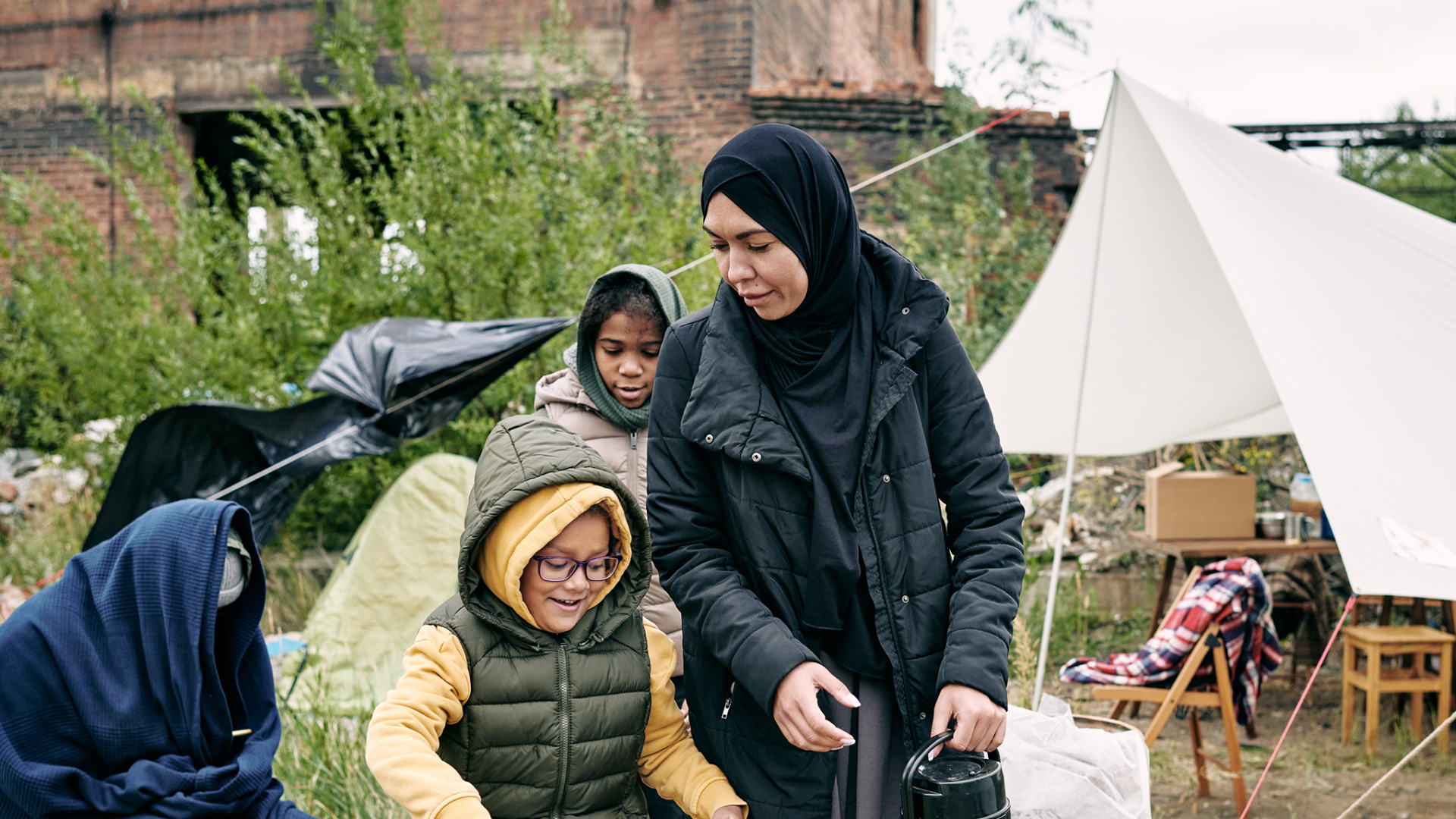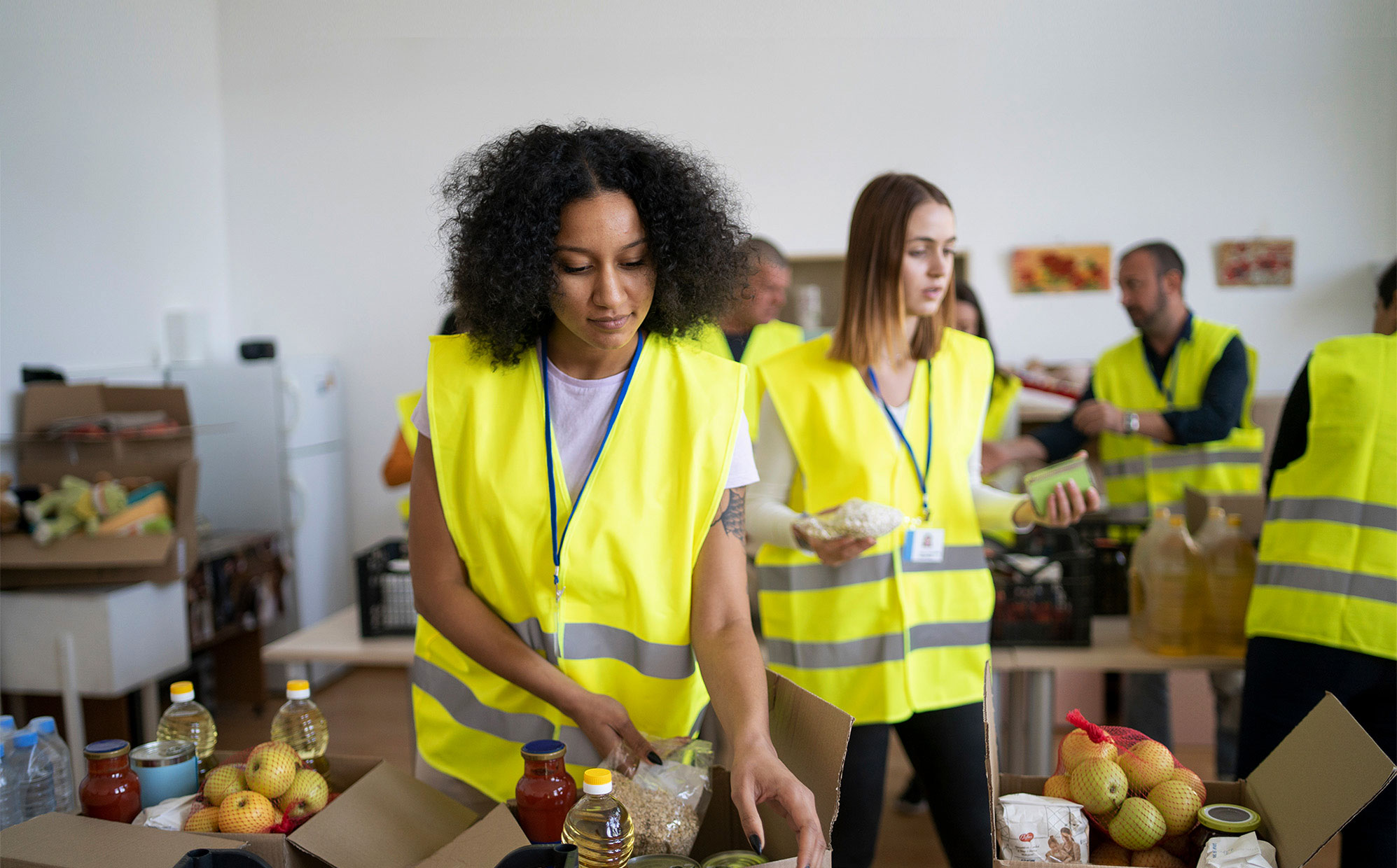
International Crisis and the Gender Gap
Empowering Women and Addressing Gender Inequality in Times of Conflict
More than 20 years have passed since the adoption of United Nations Security Council Resolution (UNSCR) 1325, which for the first time enshrined the participation of women and their role in international peace and security. Women around the world have made significant progress toward economic and educational equality since this resolution was adopted, however, political unrest and war continue to be particularly harsh on women, who remain underrepresented in conflict and crisis resolution. In order to address these issues and find sustainable, long-lasting solutions, it is vital to include women’s voices.


How Crises Affect Women
Since the groundbreaking UNSCR 1325 was adopted in October 2000, more than 100 UN member states have gone on to formulate National Action Plans—documents outlining a government’s course for localized action in relation to women, peace, and security. While these efforts are laudable, much of the conversation surrounding these topics is still male-dominated.
Data collected by the Council on Foreign Relationships (CFR), an American think tank specializing in foreign policy, reveals that around 75% of peace processes between 2015-2019 did not involve women in leadership roles. Moreover, the focus had been mainly on protecting women, seeing them as victims, rather than empowering them to take an active role in crisis resolution.

Limiting or omitting women’s involvement leads to missed opportunities in peacemaking. Women often take a collaborative approach, considering the concerns of diverse demographics affected by a conflict, such as religious, ethnic, and cultural groups. According to the CFR, research suggests that this kind of approach increases the prospects of long-term stability.
The limitations of male-dominated decision-making have prompted other research institutes to bring the gender issue to the fore. Asako Osaki is a gender specialist at Gender Action Platform (GAP), a think tank that specializes in mainstreaming gender perspective into various policies and programs in Japan.

GAP provides a platform for dialogues among policy makers, the government, civil society and the private sector, as we need a multi-stakeholder approach to address gender inequality.
Asako Osaki, Gender Action Platform
Empowering women also means understanding the specific ways in which they experience conflict and crisis, and the risks they face. For example, gender-based violence and sexual assault on women often accompany war. “In situations where security and law enforcement are weakened or deteriorates, violence may occur more frequently and without being punished,” Osaki points out.
Women also generally bear a greater share of the burden of care work, such as cooking, fetching water and looking after children and the elderly. “When the public service stops, it means more work for women. We should pay more attention to the implications of the burden of care during and after conflict,” says Osaki.
Japan’s Collaborative Approach
While Japan has a generally low gender gap index, the country scores high in health and education. As a leader in scientific research, Japan is drawing on its strengths to contribute to empowering women in crisis-torn countries. In Afghanistan, for example, the Japan International Cooperation Agency (JICA) has partnered with UNICEF to promote infectious disease prevention, aiding the procurement of vaccines for pregnant women and infants. As the primary decision makers in charge of family health matters and education, including the input of mothers in this vaccination program has been vital to its success.

Osaki believes that combining resources and know-how in this way can support Japanese agencies like JICA to extend their reach and help even larger numbers of people. “Collaboration with multilateral organizations like the UN can create meaningful synergies particularly during conflict and crises,” she says.
As part of the Community Empowerment Project, launched by JICA partnership with Tribalogy’s Stitches of Hope for Training initiative, JICA recently provided sewing training to Syrian female refugees in Jordan, the majority of whom were able to generate extra income by selling handmade masks.
Since 2014, the Japanese government has been hosting the World Assembly for Women (WAW!) underlying their commitment to promote gender equality and women’s empowerment. The latest assembly (WAW! 2022) was held in December 2022, and included a ‘Women’s Participation in Peace and Security’ breakout session.
Osaki, a speaker at the event, says that one of the key takeaways is the importance of ensuring women’s participation at every step of conflict resolution and peacekeeping. “The prerequisite for this is women’s political participation in everyday life, at all levels from community to national, and a gender balance in security and diplomatic institutions, including government, military and academia,” she says.
A Battle for Equality
Also speaking at WAW! 2022 was Atsuko Higashino, a senior lecturer and researcher in European politics at the University of Tsukuba who has a particular interest in the ongoing conflict in Ukraine. She points to how this has placed Ukrainian women and children in an unprecedented predicament, as the majority of Ukrainian men between the ages of 18 and 60 are required to stay in the country to help with the war effort.
“The situation is unique, since it is only women and children who can leave Ukraine. However, there are many people who cannot leave the country because they must care for their parents, or they have jobs, or perhaps they don’t have relatives or friends outside Ukraine.” Higashino notes that those that have remained have become victims of targeted attacks, including a deadly airstrike on a theater in Mariupol where pregnant women and young children had gathered.

A UN policy paper has since revealed that 265,000 Ukrainian women who were pregnant when the war broke out were forced to flee or give birth in a time of conflict. School-aged girls are at particular risk of gender-based violence, sexual exploitation, and trafficking, and forced marriage as a result of these worsened living conditions. In addition, women fleeing through humanitarian corridors face unique problems. “They had a very tragic experience such as being forced to take their clothes off during screening, and it has been alleged that some were even raped while waiting to access the humanitarian corridor,” says Higashino.
So far, talks between Ukraine and Russia over a ceasefire have not come to fruition. Higashino believes that active participation by women on both sides would lead to a better outcome.

I think Russia and Ukraine are rather male-dominated societies, so even though exchanges between men and women are taking place, it is not well-reflected in the actual policy making and negotiations.
Atsuko Higashino, Senior lecturer and researcher in European politics, University of Tsukuba
Since 2022, Japan has been proactively welcoming Ukrainian women and children fleeing war in their homeland. Involving the women in these efforts, such as encouraging them to become role models for their children by learning Japanese culture and language, is important for the successful integration of these families.
There is still much work to be done in terms of including women in crisis management, but there is also much to be gained when gender perspective is integrated into policymaking. A study by the International Peace Institute (IPI), an independent non-profit lobby group specializing in peace and security issues, found that peace agreements in which women participated in the negotiations are 35% more likely to last for fifteen years. The evidence is compelling; now is the time to act.





